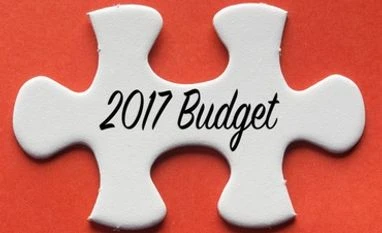Even though it was a massive political success, it’s still unclear if the experiment worked for the government in its stated attempt to curb black money or raise the tax base by bringing a larger share of unaccounted income.
According to the report by the brokerage firm, the government is expected to announce an ‘anti-rich’ budget with a secondary focus on: delivering token payments to the poor; and tax cuts for the middle class
Setting the scene for cashless economy and curbing more black money for the coming months, the budget might include the below features:
•An adverse decision on the Capital Gains Tax front: The Government might tweak the definition of ‘long term’ thereby raising the limit for capital gains tax relief to a minimum of three years from one year at present for equity funds. The changed definition would imply that investors will have to pay a 15% tax on the premium or gains made if the stock is sold within three years.
•Steps to create penalties for undertaking cash transactions: Going forward, the Government seems likely to introduce rules to disincentivise usage of cash. It is worth noting that the Supreme Court-appointed Special Investigation Team (SIT) on black money has recommended that the Government should make cash transactions above Rs30,0000 and possessing more than Rs 15,00,000 at a given time, illegal. We believe that the Government might consider either or both options to dissuade cash transactions.
•Measures to prevent withdrawal of cash from the banking system: The economic think tank, Arthakranti which was the first body to moot demonetisation has also recommended imposition of tax on ATM withdrawals and eventually replacing this with a banking transaction tax (BTT). The Government may consider the same in a bid to build the perception that such a move penalises those who operate in cash.
•As intensification of tax raids: Both to boost tax revenues and to perpetrate the ‘black money crackdown’ theme, we expect the Government to intensify tax raids in FY18.
Another major feature for the Union Budget 2017 will be the tokens and tax cuts that are likely to be delivered in FY18.
Even after the high tax revenue from amnesty schemes and penalties, fiscal target of 3% of GDP for FY18 is likely to be breached by 30bps as slower GDP growth is likely to translate into lower tax revenue growth; and the Government is likely to undertake extra fiscal transfers for the lowest economic strata for the country to mitigate the adverse effects of demonetisation, the report noted.
“Despite the expectation of the announcement of higher fiscal transfers, we expect fiscal slippage to be limited mainly because we expect the Government to scale up revenue expenditure in lock-step with tax revenue receipts,” analysts at the brokerage firm said.
The government may increase its revenue expenditure allocation by 0.6% whilst capex is deprioritised in the coming budget. This is higher as compared to the 0.4% of GDP increase delivered in FY17 but lower than what the UPA-I delivered in FY09 at 2% of GDP.
“The increased revenue expenditure could well assume the form of Universal Basic Income (UBI) on a pilot basis being launched in India in FY18,” the brokerage firm noted. The government might also increase its spending on MGNREGA programme to accomplish the same.
Economic survey for FY16 estimates that Government subsidies like small savings schemes and the tax/subsidy policies on cooking gas, railways, power, aviation turbine fuel, gold and kerosene are appropriated by the rich rather than poor entailing a cost of 0.7% of GDP.
Hence, there is a possibility that the Government will begin trimming subsidies that accrue to the rich, the report added.
Furthermore, in a bid to deliver continuity on the black money crackdown theme, the brokerage expects the Modi-led NDA Government to make a big push towards registration of properties and hence increase property tax-related collections. India has one of the lowest property tax collections in the world mainly due to non-compliance. This arises due to the fact that a lot of properties in India do not have proper registrations and hence are able to avoid tax.
To read the full story, Subscribe Now at just Rs 249 a month
Already a subscriber? Log in
Subscribe To BS Premium
₹249
Renews automatically
₹1699₹1999
Opt for auto renewal and save Rs. 300 Renews automatically
₹1999
What you get on BS Premium?
-
Unlock 30+ premium stories daily hand-picked by our editors, across devices on browser and app.
-
Pick your 5 favourite companies, get a daily email with all news updates on them.
Full access to our intuitive epaper - clip, save, share articles from any device; newspaper archives from 2006.
Preferential invites to Business Standard events.
Curated newsletters on markets, personal finance, policy & politics, start-ups, technology, and more.
Need More Information - write to us at assist@bsmail.in
)